School Overview
The MUC Academy for Research on Ethnic Minority Languages is an independent research platform within Minzu University of China. It has earned attention at the national and even at the global level for its research and sorting of Chinese minority languages and ancient books.
School Overview & Development History
The Academy's history dates back to the early days of the founding of the people's Republic of China. In 1952, the former Central College of Nationalities established the Department of Chinese Minority Language and Literature. The Chinese Ethnic Minority Languages and Literature major was one of the earliest majors of the Central University of Nationalities in 1979. The Institute of Minority Languages was established by the former Institute of Chinese Ethnic Minorities, approved by the State Ethnic Affairs Commission to strengthen the research and usage of Chinese ethnic minority languages and scripts. Ma Xueliang, a famous linguist who was then Director of the Department of Minority Languages and Literature, also served as Director of the MUC School of Language and Literature of Ethnic Minorities and studied more than 80 languages in five major language families spoken by 54 different nationalities in China. During this period, the Academy organized and implemented many language research projects and published a series of research results with great influence. In 1986, the MUC School of Ethnic Minority Languages and Literature was divided into the first, second, and third faculties of ethnic languages and literature. The Academy of Minority Languages was merged with the third ethnic language faculty which focused on Southern Languages and Literature and was renamed as "Academy of Language and Culture." Experts such as Ma Xueliang, Daiqingxia, Guojiningha, and Yangquan successively served as the Directors of the Academy. In 1995, the Faculty of Linguistics was established. The Academy of Language and Culture and the MUC School of Linguistics constitute one set of personnel serving two distinct brands. In 2000, the Academy of Language and Culture was merged into the newly established MUC Faculty of Ethnic Minority Languages and Literature. It was then affiliated with the Department of Chinese Minority Languages and Literature. In 2005, MUC decided to resume establishing an independent Academy of Chinese Minority Languages to strengthen the study of minority languages in the new period. In September 2010, the former Institute of Language and Ancient Books were merged to establish the Institute of Chinese Minority Languages and Ancient Books.

Majors & Programs
The institute is currently recruiting masters and doctoral students focusing on a Chinese ethnic minority language/literature, linguistics/applied linguistics, and Chinese classical literature. The master's degree programs focusing on Tibetan-Burman languages, sociolinguistics, experimental phonetics, and Chinese classical philology. The doctoral degree programs include historical-comparative linguistics, linguistic typology, experimental phonetics, and Chinese classical philology.
Academic Master's Programs (3-Year Programs)
Major |
Research Direction |
Advisor |
Linguistics and Applied Linguistics |
Cultural linguistics |
Ding Shiqing |
Sociolinguistics |
Hu Suhua |
Applied Linguistics |
Zhou Guoyan, Liu Yan, Jiang Ying |
Chinese Classical Philology |
Ethnic Literature Research |
Zhang Tieshan, Gao Wa, He Siyuan |
Chinese Minority Language and Literature |
Yi-Burmese Language and Culture Studies |
Liu Zhengfa, Li Zeran |
Research on Zhuang-Dong Languages |
Li Jinfang, Dai Hongliang |
Uyghur Language Studies |
Abdurisit Yakup |
Mongolian National Literature |
Chaogtou |
Chinese-Uyghur Translation Studies |
Wu Maier Jiang Wu Ji Ai He Mai Ti |
Comparative Literature and World Literature |
Comparative Literature and World Literature Direction, Mythology, Folk Literature and Art |
Wang Lizhen |
Doctoral Programs (4-6 Year Programs)
Major |
Research Direction |
Advisor |
Linguistics and Applied Linguistics |
Field Linguistics and Descriptive Linguistics, Document Linguistics |
Abdurisit Yakup |
Applied Linguistics |
Zhou Guoyan |
Human Linguistics |
Ding Shiqing |
Linguistic typology |
Hu Suhua |
Modern phonetics |
Liu Yan |
Chinese Classical Philology |
National Literature and Intangible Culture Research |
Zhang Tieshan |
Chinese Minority Language and Literature |
Language Studies of Sino-Tibetan Language Family |
Li Jinfang, Dai Hongliang |
Mongolian National Literature |
Chaogtou |
Comparative Literature and World Literature |
National Literature and National Literature Comparison |
Wang Lizhen |
Note: This information was most recently updated in 2020. |
School Focus, Beliefs & Development Objectives
The institute strives to develop its disciplines and academic level to align with international standards. At the same time, it works to encourage outstanding young and middle-aged teachers to visit and study abroad and is committed to introducing high-end talents from overseas who study ethnic minority nationality languages. At the same time, the institute works to strengthen the cultivation of graduate students. Furthermore, it works steadfastly to introduce talents with ethnic minority nationality languages as their mother tongue. It works to cultivate reserve talents and new forces for studying ethnic minority nationality languages and ancient books.
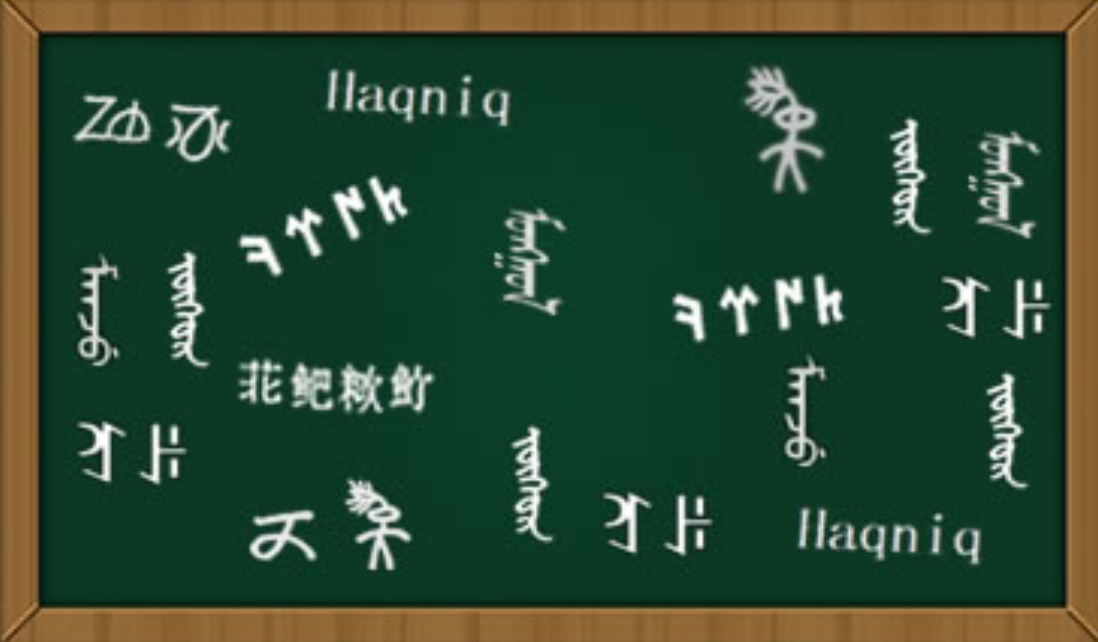
Chinese ethnic minority languages are very rich. There are about a hundred languages with various types and characteristics. They belong to the five major language families, including the Sino-Tibetan, the Altaic, the Austronesian as well as the Indo-European types. Moreover, Chinese ethnic minorities have a wide variety of script types. Some ethnic groups have their traditional scripts, some of which are still in use, while some are only seen in ancient classics.
Language and writing are the crystallization and carrier of human civilization and wisdom. Chinese minority languages are an important part of Chinese civilization and constitute a treasure-trove for the greater world culture. It is a very meaningful and urgent task to record, sort out, study, protect the Chinese minority nationality languages and ancient books by means of modern linguistics and philology theory, and rescue endangered languages and scripts.
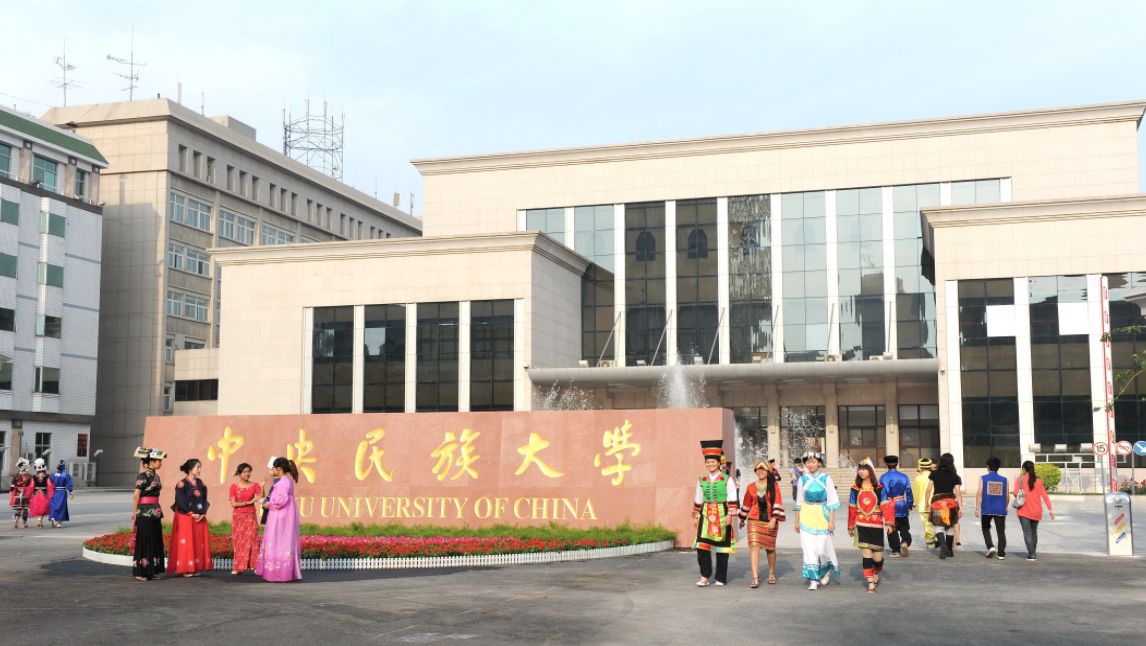
In 2016, MUC readjusted the development orientation of the former MUC Research Institute of Language and Ancient Books and decided to formally establish the Chinese Academy of Minority Languages to carry out research encompassing language ontology, language function, cross-border languages, bilingualism, language policy, language theory, language protection (including endangered language protection) and language archival research. At the same time, the academy strives to research the collation of ancient Chinese books of ethnic minorities and provide advice and services in national policymaking encompassing minority languages. In July 2019, the Institute became an independent research platform at the university level, separated out from the Department of Chinese Minority Languages and Literature, and established the Academy of Chinese Minority Languages directly affiliated to the Party branch. Abdulaahshiti Yakup is the current Director of the Academy, Liu Zhengfa is the Secretary of the Party branch, and Chaogetu, Zhou Guoyan, and Wumaierjiang Wujiaihemaiti are Deputy Directors.
Since its establishment, the Academy has been focusing on constructing the awareness of the Chinese community, promoting the traditional and excellent culture of the Chinese nation, and vigorously promoting the research and collation of minority languages and ancient books. Based on local language resources, the Academy’s ongoing research practices inherit the excellent academic traditions of the old generation of experts and scholars. Still, they are also adopting international perspectives and advanced linguistics, ancient books and literature, and theoretical methods. The research results are abundant, and the academic influence of these results has rapidly improved both in China and abroad. The Academy is gradually upgraded into a very important research institution in the Chinese language and literature discipline at home and abroad.
Our Talent
The Academy has a team of young and middle-aged people with strong scientific research strength, diverse cultural backgrounds, and distinctive research characteristics. There are 27 faculty members, including 12 professors, 3 associate professors, and 10 lecturers, 1 specially invited professor of Yangtze River scholars program, 2 experts enjoying special allowances under the auspices of the State Council, 2 leading talents of the National People's Commission, 1 well-known Beijing municipal instructor, 2 National candidates from the national-level New Century Talents project, 1 instructor from the Youth and Middle-aged Talents Program of the National People's Committee and 5 talents from the support plan within the New Century of the Ministry of Education Outstanding Talents Project.
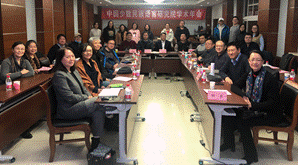
Chief Researcher: Professor Dai Qingxia, a distinguished first-class professor, member of the State Council, and former dean of the MUC School of Minority Languages and Literatures, is the chief researcher.
Academic Exchanges and Cooperation at Home and Abroad
Currently, the Academy has three provincial and ministerial commissioned research platforms. Namely, the National Center for Monitoring and Research on Minority Languages (established in 2008), the China Center for the Protection and Information of Ancient Chinese Ethnic Minorities (established in 2010), and the Research Center for the Protection of Chinese Ethnic Minority Language Resources (established in 2016). The Academy has established the National Civil Affairs Commission Humanities and Social Sciences Key Research Base: the Chinese Minority Language Research Base (2014) and another Chinese Institute of Ethnic Minority Languages Research Center, the Belt and Road Language and Culture Research Center, and the Bilingual Research Center, the Zhuang Dong Studies Institute, the Comparative Literature, and World Literature Research Center amongst other university-level scientific research platforms. It has a university-level "111 International Platform of Academic Cooperation" base called the Institute of Chinese Ethnic Minority Language Information Structure. It publishes three academic journals: the Journal of Chinese Tibetan, Research on Ethnic Ancient Books, and the Journal of Altay Languages and Literature. Mr. Dai Qingxia is the editor-in-chief, and Professors Hu Suhua, Lan Qingyuan, and Luo Ziqun are the associate editors. "Research on National Ancient Books" was founded in 2011 and worked to consolidate and report outstanding achievements in collating ancient national books in China and abroad. Mr. Zhang Gongjin serves as the chief editor, while Professor Zhang Tieshan serves as the executive editor.

Examples of Internationally Active Scholars
Abdurisit Yakup (阿不都热西提·亚库甫), Uyghur Ethnicity
Professor, Doctoral Advisor, Deputy Director
Ph.D., Linguistics
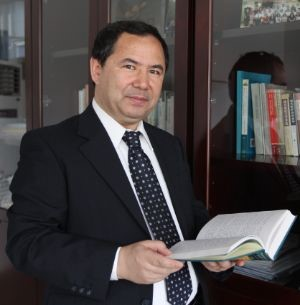
Abdurixiti Yakup, of the Uyghur nationality, was born in September 1964. He has a dual Ph.D. from MUC (June 1996) and Kyoto University (September 2000). He has been selected as the "Yangtze River Scholar of the Ministry of Education, 2008". He is a "Specially-appointed professor, mainly engaged in the teaching and research of document linguistics (namely that of Turfan and Dunhuang documents and other modern Central Asian documents). He is also interested in field linguistics and language archival as well as Altaic language function-typology and more.
He is a distinguished professor at MUC under the title "Yangtze River Distinguished Scholar." He is a Professor, Doctoral Supervisor, Deputy Director of the MUC Chinese Language and Literature Department, Dean of the Chinese Academy of Minority Languages, and concurrently a member of the 7th Chinese Discipline Evaluation Group of the Academic Degrees Committee of the State Council, an expert member of the National Social Science Foundation (National Ethnic Language Advisory Committee of the State Ethnic Affairs Commission). He is also Vice President of the Chinese National Linguistics Society, amongst other things.
His publication work is also very prolific. He published "The Turfan dialect of Uyghur" (Wiesbaden: Harrassowitz Verlag, 2005), "Die uigurische Blockdrucke in der Berliner-Turfansammlung" (Stuttgart: Franz Steiner Verlag, 2007, 2008, 2009, in three volumes in Chinese, English, German, Japanese and other languages) ), "Prajñāpāramitā Literature in Old Uyghur" (Berliner Turfantexte XXVIII, Turnhout: Brepols, 2010), "Ancient Uyghur Language Hymns and Descriptive Poems" (Shanghai: Shanghai Ancient Books Publishing House, 2015), "Altuigurische Aparimitāyus-Literatur and kleine tantrische Texte" (Berliner Turfantexte XXXVI, Turnhout: Brepols, 2016) and other monographs. He also co-authored 6 monographs, and published more than 80 academic papers.
Chokt (朝格吐), Mongolian Ethnicity
Professor, Deputy Dean, Doctoral Advisor
Ph.D. Linguistics

Chaogetu (Chaokettu) was born in Kezuohou Banner, Zhelimu League, Inner Mongolia, in March 1964. He is currently the Deputy Dean of the MUC Institute of Chinese Minority Languages. He is a second-level professor, a subject leader, and a doctoral supervisor. Other than this, he is also Deputy Secretary-General of the Chinese Mongolian Literature Association. His research direction is Mongolian folk literature, Mongolian folk art, modern and contemporary Mongolian literature, and minority literature.
Study Experience and Work Resume
From September 1981 to July 1984, he studied at the Zhelimumeng Nationality Middle School in Inner Mongolia. From September 1984 to July 1988, he studied Mongolian Language and Literature in the Ethnic Language Department of MUC. From 1988 to July 1991, he studied for a master's degree in Mongolian folklore at MUC in the Department of Mongolian Language and Literature and obtained a master's degree in literature. Between September 1998 and July 2001, he studied northern folk literature in the Mongolian Language and Literature Department of MUC. Other than this, he studied Japanese at Dalian University of Foreign Studies in 2006.
Monographs
• "Inheritance and Development: A New Study of Mongolian Literature" (Mongolian), National Publishing House, 2020.
• "УЛАМЖЛАЛ БА ХӨГЖИЛ: МОНГОЛ УТГА ЗОХИОЛЫН ШИНЭ СУДЛАЛ" (Cyrillic Mongolian), Ulaanbaatar, 2019.
• "Research on Mongolian Storyteller Rausl" (Mongolian), National Publishing House, 2012.
Co-authored Works
• "Korqin Storytelling Oral History" (Mongolian), edited by Yi Er very Bai Yi La, Inner Mongolia Education Press, 2018.
• "Famous Storyteller Erdun Jiruhe" (Mongolian), co-authored with Lausier, Inner Mongolia People's Publishing House, 2014.
• "Research on Roussel and His Works" (Chinese), co-authored with Zhao Yuhua, Liaoning Nationalities Publishing House, 2014.
Compiled and Annotated Works
• "Huren Uliger Boutique Collection"② (Mongolian), National Publishing House, 2014.
• "Eerdun Jiru and Uliger Haolaibao" (Mongolian), 2 volumes, compiled in cooperation with Sanbulano Ribu and Han Fuli.
Zhou Guoyan (周国炎), Buyi Ethnicity
Deputy Director
Ph.D. Linguistics

Zhou Guoyan, of the Buyi nationality, was born in Zhenfeng County, Guizhou Province, in September 1962. He used to be the Deputy Director and Director of the MUC Minority Language and Literature Department, and the Deputy Dean of the Chinese Minority Language and Literature Institute. He is the Vice President, Professor, and Doctoral Supervisor of the Chinese Academy of Minority Languages. His main social part-time jobs include serving as Deputy Secretary-General of the Chinese Ethnic Language Research Association and the Chinese Ethnic Ancient Characters Research Association's Executive Director. He is a full-time researcher of the National Minority Commission Document and Ancient Books Research Center.
He is a guest professor at Guizhou University for the Nationalities and a guest professor at Qiannan Normal University for Nationalities. From September 1979 to July 1981, he studied English at Xingyi Teachers College in Guizhou Province. From September 1981 to July 1984, he taught at a middle school in Zhenfeng County. From September 1984 to June 1985, he worked at the Central Institute for Nationalities. He also studies as a postgraduate at the Institute of Minority Languages of the Central University for Nationalities, focusing on Zhuang-Dong language and literature. In July 1987, he graduated from the school and had been teaching thereat since and was appointed as a Lecturer in 1992 and an Associate Professor in 2000. In September 1999, he became an on-the-job doctoral student at MUC, focusing on cultural linguistics. He was awarded a doctorate in June 2002 and became a professor in 2005, and he became a doctoral advisor in November 2007.
His main research fields are applied linguistics, Dong-Tai language and culture research, and in-depth research regarding the Buyi and Gelao peoples' language and culture. The main research results include dozens of papers such as "Research on the Formal Types and Semantic Expressions of Bouyei Language Causative Structure," and more than ten books including "The Status Quo and Evolution of Bouyei Language Use," and the "Collection of Long Discourse Materials in Bouyei Language." He has long served as an instructor of Bouyei (Buyi) language, applied linguistics, contrastive linguistics, language information processing, professional linguistics English, and language and cultural research courses for undergraduates and graduates. Since the 1990s, he has visited the minority areas of Guizhou Province to investigate the Buyi and Gelao people's language and culture. From October 1995 to July 2008, he was invited to conduct educational visits to Mahidol University in Thailand and the University of London in England. He has participated in international academic conferences in Bangkok and Chiang Mai in Thailand, Ho Chi Minh City in Vietnam, and Illinois (USA).
Works
• Bouyei Language Cause Markers and Grammatical Analysis (co-authored with Lu Xiaolin, first author), Journal of Guizhou University for Nationalities, Issue 4, 2018.
• A Study on the Formal Types and Semantic Expressions of Causal Structures in Buyi Language (co-authored with Wang Fengxia, first author), Journal of Central University for Nationalities, Issue 4, 2018.
• A Study on Bouyei Language in Longli Sheep Farm and Its Sound Changes, Journal of Guizhou University for Nationalities, Issue 2, 2017.
Wang Lizhen (汪立珍), Han Ethnicity
Professor and Doctoral Supervisor
Ph.D. Linguistics
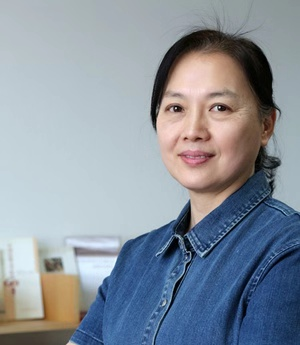
Wang Lizhen, Professor and Doctoral Supervisor of Chinese Ethnic Minority Languages Research at Minzu University of China. She won awards for Excellent Teacher of Beijing and Outstanding Teacher of BaoGang. She is the chief expert of the project "Rescuing Sorting and Research on the Oral Literature of Ethnic Groups with Less Population in Northeast China." The project was part of the National Social Science Foundation activities of China in 2018. She is also the main lecturer of the national high-quality open online courses "Myth and Human" and "Appreciation of Chinese Minority Myths." She has a long-standing interest in mythology and folk literature studies and comparative literature, and world literature. She has presided and completed more than 20 scientific research projects at the national and provincial levels. She has published more than 10 works such as "Research on Ewenki Mythology," Research on Man-Tonggus folklore, and more than 40 academic papers.
Hu Su-hua (胡素华), Han Ethnicity
Professor and Doctoral Supervisor
Ph.D. Linguistics
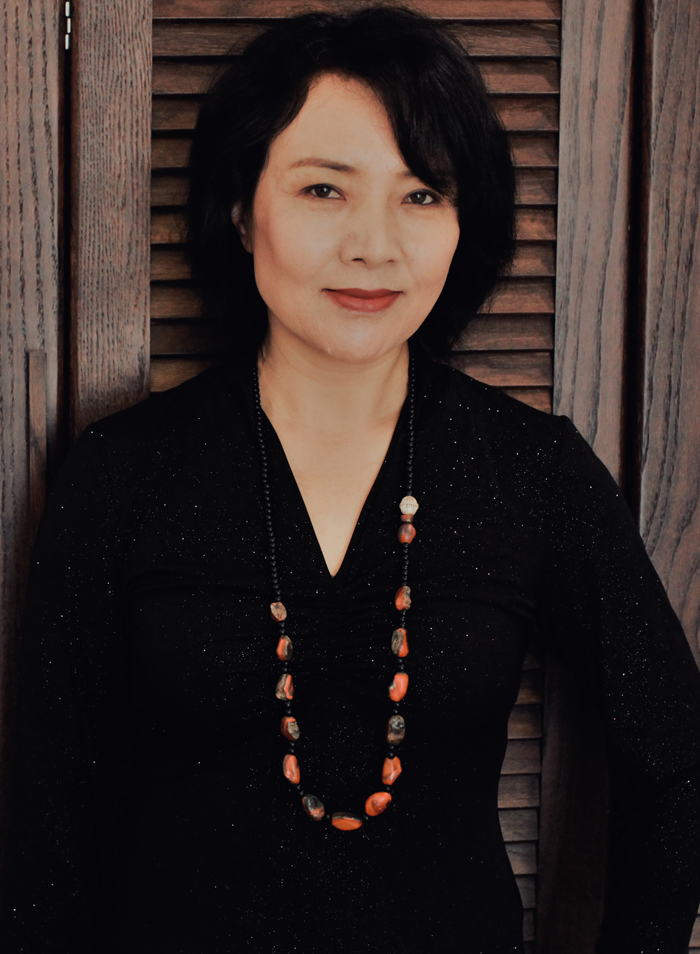
Hu Su-hua was born in the Liangshan Yi Ethnic Autonomic Prefecture of Sichuan Province in southwestern China and is currently Professor of Academy for Chinese Ethnic Minority Languages at Minzu University of China. Her research interests include linguistic typology; syntax and semantics, Tibeto-Burman languages (particularly Yi (Lolo) modern language and classics) as well as sociolinguistics. She teaches courses with topics including Linguistic Typology, General Linguistics, Sociolinguistics, Sino-Tibetan Languages, Introduction to Lolo-Burmese, as well as Yi language and Classics amongst others. She speaks the Nuosu Yi language (her mother tongue), Mandarin Chinese, English and Burmese.
Academic Background:
06/1991 |
Obtained B.A. degree in Linguistics from Central College of Nationalities (the former name of Minzu University of China). |
06/ 1994 |
Obtained M.A. in sociolinguistics from the Central University for Nationalities (CUN) (the former name of Minzu University of China)). |
06/1999 |
Obtained Ph.D. in linguistics from the Central University for Nationalities (the former name of Minzu University of China) (MUC). |
Recent AWARDS, HONORS, FELLOWSHIPS
2020 Second-class prize, the 16th Award to Excellent Scientific Output of Philosophy and Social Science of Beijing (on the monograph of Annotation and Linguistic Study on the Epic Hnewo Tepyy of Nuosu Yi ).
2019 A Leading Talent, Awarded by the National Ethnic Affairs Commission of the People’s Republic of China.
2019 An Outstanding Talent, Awarded by the Minzu University of China.
RECENT RESEARCH GRANTS
2019 Inheritance and Transmutation of Yi Oral Epic and Philosophical Classics, Leading Talents Support Program, granted by the National Ethnic Affairs Commission of the P.R.C. (in progress)
2018 Glossing Annotation and Linguistic and Philosophic Studies on the Yi Classics of Education, granted by the Major Project of the National Social Science Foundation: Distinctive Project on the Extinct Knowledge (Grant No. 2018VJX052)
2019 Documentation and Protection on Jianshui Yi Language of Southern Yi Dialect (the Special Project of China Language Resources Protection), granted by State Language and Character Work Committee of China and Ministry of Education of P.R.C. (Grant No. YB1912A026)
PUBLICATIONS
Monographs
1. Glossing Annotation and Linguistic Study on the Epic of Nuosu Yi Hnewo Tepyy, China Social Sciences Press, 2020.
2. Research on the Yi Structural Particles, The Ethnic Publishing House, 2002.
3. Yi Lexicon (Co-author), (writing five parts---Name of Yi Ethnic Group, Compound Words, Loan Words, Word Families, Directional Reference Terms) , Minzu University of China Press,1998.
4. A Study on Akha Language in Thailand (Co-author), China Social Sciences Press, 2009.
5. Akha People and Its Language Use at Vavee Sub-district of Maesuai District, Chiangrai Province of Thailand (Co-author), China Social Sciences Press 2009.
6. Language Uses of Various Ethnic Groups in Yanyuan County of Sichuan Province(Co-author), China Social Sciences Press 2011.
Compilation Books
1. The Shifts and Changes of Tibeto-Burman Language Use, Editor, Nationalities Press, 2012.
2. A study of Chinese Minority Ethnic Languages-- Proceedings on the Celebration of the Distinguished Linguists Dai Qingxia's 80th Birthday, Co-editor (with YAKUP, Abudurishidi and Chunfeng Li), China Social Sciences Press 2016.
3. Studies on the Classifiers of Sino-Tibetan Languages, Co-editor (with LI Jin-Fang), Minzu University of China Press, 2005.
4. Comparative Studies on Grammar between Chinese and Minority Ethnic Languages Co-editor (with DAI Qing-xia), The Ethnic Publishing House, Beijing, 2006.
Li, Jinfang (李锦芳)
Professor of Linguistics
Ph.D Linguistics

Jinfang Li is from the Tianlin County, Guangxi Zhuang Autonomous Region in the south of China.
EDUCATION
1979~1983 Bachelor of Arts, Dept. of Chinese Language and Literature, Guangxi University of Nationalities (Major: Chinese language and literature)
1985~1987 Master of Arts, Minzu University of China (MUC) (Major: Kam-Tai Linguistics, General linguistics)
1993~1996 Doctor of Philosophy, MUC (Specialization: Tai-Kadai Linguistics)
RECENT WORK EXPERIENCE
2013 Director Institute of Kam-Tai Studies of MUC
2016 Member of the Valuation Committee of Professional Titles of MUC
2018 Member of the Professor Committee of MUC
COURSES OFFERED
1) Modern Chinese
2) Classical Chinese
3) Modern Zhuang
4) Zhuang Language and Culture
5) A Comparative Grammar: Zhuang and Han
6) Introduction to Kam-Tai Languages
7) Linguistic Fieldwork
8) An Introduction to Linguistics
9) Languages and Cultures of Southeast Asia
RECENT PRIZES, GRANTS AND HONOURS
2014~2021 Research and database construction of newly discovered ethnic characters(14ZDB105),800,000Yuan, major project, research grant from The National Foundation of Social Science
2015-17 Project of China language resource protection: Endangered language investigation: Duoluo dialect of Gelao, 150,000 Yuan
2016-18 Project of China language resource protection: Language and culture investigation: Xilin Zhunag Language of Guangxi, 200,000 Yuan
RECENT PUBLICATIONS
Journal Articles
2018 The feature and variation of the sound system of the Ninglang Zhuang in Yunnan, Minzu Yuwen No.3, Beijing
2019 A comparative study on Duoluo dialect of Gelao in China and Vietnam, Minzu Yuwen No.1, Beijing
Book Chapters
2007 Chadong language, Buyang Language, Bugan Language, Languages in China, ed. by Sun Hongkai, Hu Zengyi and Huang Xing. Commercial Press, Beijing
2008 Chadong, A Newly-Discovered Kam-Sui Language in Northern Guangxi. in Tony
Diller, Jerold Edmondson and Luo Yongxian (eds.) The Tai-Kadai Languages,
Routledge Press, London
2014 Bugan (chapter16), The Handbook of the Austro-Asiatic Languages (with Luo
Yongxian), P1031-1062, BRILL, Leiden
Monographs
Solo-authored
1996 Studies on the Buyang Language, Ph.D Dissertation, CUN. 284 + vi pages. (Revised version published by CUN Press, Beijing, 1999)
2002 Tai-Kadai: Language and Culture, 335 + xi pages. Minzu Press, Beijing
2006 Studies on Endangered Languages in the Southwest China,776 + xii pages. MUC Press, Beijing
Co-authored
2014 A Grammar of Zoulei, Southwest China(with Li Xia and Luo Yongxian),pp421,
Peter Lang Publisher, Bern
2017 An Introduction to the Northern Zhuang Drama, pp239, The Beijing United Press Company, Beijing
2019 Gelao Language of Liuzhi, Guizhou, pp326, The Commercial Press, Beijing
Yan Liu (刘岩)
Professor of Linguistics
Ph.D Linguistics
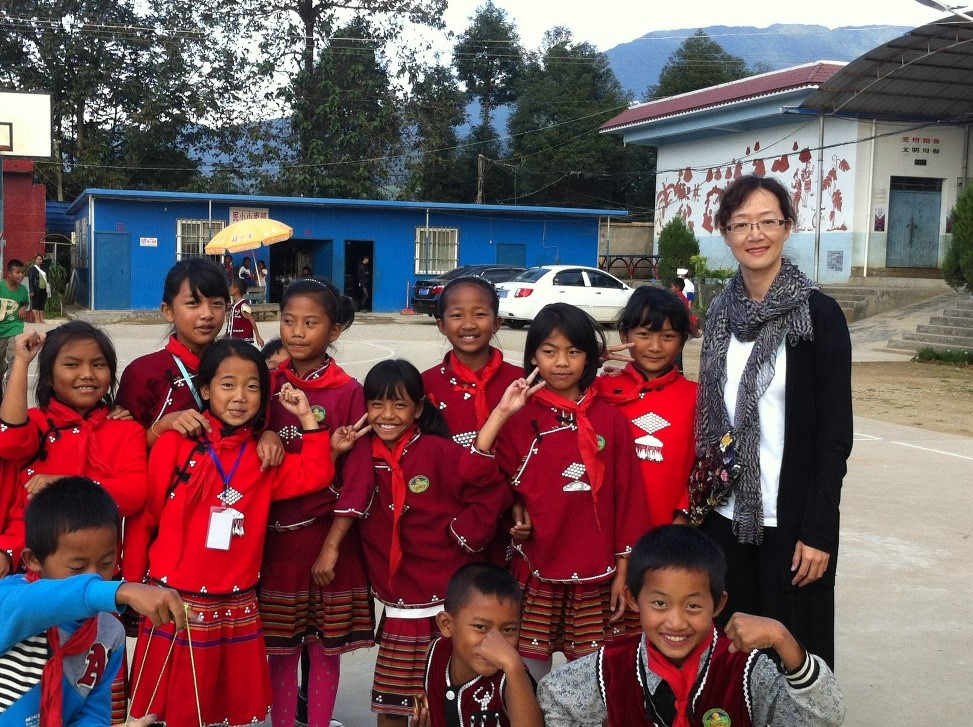
EDUCATION
1994-1997:Ph.D, in linguistics and applied linguistics, Department of Linguistics and Literature, MinZu University of China (MUC)
1991-1994: MA in Socialinguistics, Department of Linguistics and Literature, MUC
1987-1991: BA in Uyghur Language and Literature, Department of Uyghur Language and Literature, MUC
WORK EXPERIENCE
2006-Present: Professor of Linguistics, Academy for Research on Chinese Minority Languages
1997-2006: lecturer and assistant professor of Linguistics, Department of Linguistics and Literature, MUC
OVERSEAS WORK AND STUDY EXPERIENCE
2009-2010: Visiting Scholar in Department of Linguistics, University of California, Los Angeles, Research field: Phonetics, Linguistics Corpus Buildup and Research
1998: International College, Mahidol University, Bangkok, Thailand. Teaching: Chinese, Research field: Mon-Khmer languages.
RECENT BOOKS
Folktales of D’ang(including one book and one Audio disc), The Ethnic audio and video Publishing House, 2013.
Folktales of Tujia(including one book and one Audio disc, with Desheng Li), The Ethnic audio and video Publishing House, 2012.
Recordings (Audio and Video) of Minority Languages in China.(including one book and 8 CD&DVDs, with Dejun Li). The Ethnic Publishing House. 2010.
RECENT ARTICLES
Likun He, Yan Liu (2020),Floting Tone of Pianding Dialect of Naxi,Language and Linguistics, vol.3. Academia Sinica, Taiwan (forthcoming )
Yan Liu, Xirui Liu ( 2019), A visualized analysis on the research trend of L2 speech acquisition in China, inCollege English Teaching and Research. vol.4. Jilin.
Likun He, Yan Liu (2018),a-Syllables in Naxi language.Journal of changshu institute of Technology. vol.1, 2018. Jiangsu.
CONFERENCE PAPERS
Yan Liu, Shuangmei Lan, Yichen Wei, Glottal articulation analysis of Tense/Lax’s vowels of Zaiwa language, presented at25th Himalayan Languages Symposium. June 2019. Sydney, Australia.
Yan Liu, Xiaoping Yang, A Study on the Four-unit Elaborate Expressions in Liang Dialect of De’ang Language in China, presented at the 52nd International Conference on Sino-Tibetan Languages and Linguistics, June 2019. Sydney, Australia.
Yan Liu, Yichen Wei, Glottal articulation analysis of Tense/Lax’s vowels of Yunshan subdialect of Lahu language, presented at Seminar on typology research of Chinese dialects, August2019. Xiamen, China.
Institute Slogan


Official Website: https://icmlc.muc.edu.cn/